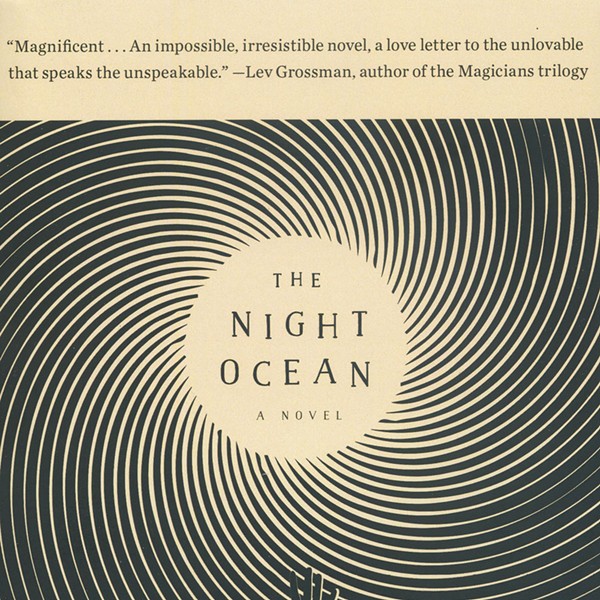Now, our educational system inculcates in us the notion that we are the most advanced human beings that ever existed on the face of the Earth. No one has ever learned anything different at any contemporary Western school. We’re at the top of the evolutionary totem pole, with our hydrogen bombs and our Disneyland and our striped toothpaste and our Wal-Marts—this is the best we’ve ever done. That notion is the central dogma of what may be the silliest and most sinister religion yet invented: I call it the Church of Progress
Actually, we don’t even need Goebekli Tepe or the Sphinx to know better. You only have to walk into the cathedral at Chartres, for example, to know that this is not the case. There were periods in human history when somebody knew something that, from an emotional point of view and also actually from a technological point of view, is pretty staggering.
When this is pushed back into ancient Egypt and it’s understood through the symbolist interpretation for what it actually is, this whole scenario of everything going from primitive cavemen to hunter-gatherers to smart old us has to be thrown out the window. We see that extremely advanced beings lived way, way, way back when, and if we again extrapolate—we can’t do this yet with Goebekli Tepe—but if it’s fair to assume that whatever the spiritual doctrine that prevailed in Egypt and in China and in India, and all of these other places, was also prevalent when Goebekli Tepe went up in 10,000 BCE, then we take an entirely different view of our own human existence, of our past and also potentially of our future. So that instead of it being just a scholarly quibble, it is actually something that profoundly challenges the reigning philosophical view, which is solidly materialistic and rationalistic. In other words, you talk to a Darwinian devotee about the meaning of life, and they will laugh at you. But when you can point to these extraordinary civilizations, and realize that they go way, way back—that their bizarre gods and irrational legends actually represent the interplay of cosmic principles, that they enshrine exact science, and that it all dates from almost unimaginable antiquity—we realize that history is not what we’ve been taught. This can be a major element, at least potentially, for positive change. Everything can be changed, individually and collectively.
So there’s more than superstition here, there’s lost knowledge relating to both the cosmos and the psyche, and we need to find it.
Oh, yeah, but it’s actually already been done. It’s there. It’s there through the work of Schwaller de Lubicz, through Gurdjieff, through Hindu and Vedic philosophy, ancient China. It’s all there for us. It’s just not taught in schools, or in universities for that matter. These ancient great civilizations stand as models for us, actually. And in fact, apart from its incorrect chronology, our Church of Progress has grievously misrepresented history. In order to understand it, you can ignore most of the historians, all of whom have their own agendas, and simply look at what these ancient civilizations have produced. You can say, as a rule of thumb, that a civilization can be judged very objectively by what it does with its creative energies.
If you look at Egypt—which is particularly interesting since there’s so much of it left to experience—Egypt is a single-issue civilization. All of it— anyway, all that remains of it—is consecrated to the immortality of the soul. Rather different from our current culture.
Right. You look at where our own creative energy goes, probably 60 percent of it, if not more, goes into weapons of mass destruction or military something, one way or another. Probably another 30 or 35 percent goes into frivolity, into Hollywood and Disneyland. And maybe 8 or 10 percent actually goes into real science, medicine, things that are genuinely useful. But almost none of it is directed toward the development of the soul, the development of any spiritual discipline. From my point of view, without that, there is no civilization; it’s just progress, which I describe as “shiny barbarism.”
What do the ancient civilizations say is the purpose of life, and human life in particular?
Really, it’s probably best expressed in a contemporary context by Gurdjieff: his pupil J. G. Bennett called it The Theory of Reciprocal Maintenance. In the simplest terms: If we human beings don’t do our job (call it striving for immortality) the whole planet, and probably the solar system and all the rest, is affected one way or another. We have a job to do, and that job involves us acquiring a level of consciousness we’re not born with. If we look around us in the chaos of today, it is self-evident that the vast majority of us are unaware that such a possibility even exists. Unfortunately, that unawareness is particularly prevalent in many who call themselves “religious.”
So what can we learn from direct contact with these ancient cultures?
Two weeks in Egypt, and you understand it viscerally. Egypt is like sex: You can read all about it; you can even look at pictures. But until you experience it, you understand nothing. You do not have to be religious to understand the truth of “By their fruits you shall know them.” So two weeks in Egypt and, unless you are emotionally retarded and spiritually dyslexic, you came to understand what a true functioning civilization once was like. And you also understand that we have nothing remotely like it on the face of the Earth at the moment.
But once you’re there, bombarded day after day with one masterpiece after another, and once it’s explained via Schwaller’s “Symbolist” interpretation, it all makes a luminous sense. After a trip there, you know something that you might have suspected but, you’ve had it proved to you: We are more, much more than our material bodies, a chance conglomeration of molecules. The ancients understood this very well and built their civilizations upon that understanding. We are always taught that they were obsessed with death and trapped in a bizarre, superstitious, religious doctrine. But understood correctly, it was not so much religion as science, a “sacred” science of cosmic principles, directed toward the development and ultimate immortality of the soul.
Florence Nightingale visited Egypt back in 1849 and wrote perceptively back to her friends and family in England, “One wonders that people can come back from Egypt and live lives the way they lived them before.”

















